What Can You Put in a Diffuser Besides Essential Oils
If you’re a fan of aromatherapy, air purification, or simply enjoy a pleasant scent in your home, then you’re likely familiar with using essential oils in a diffuser.
But did you know that there are many other substances you can put in a diffuser besides essential oils? From water and carrier oils to herbs and spices, the options are endless.
In this article, we’ll explore the benefits of using a diffuser, discuss what other substances you can use, and provide tips for safely using them. Let’s dive in!
Key Takeaways:
What Is a Diffuser?
A diffuser is a device that disperses essential oils or scents into the air, creating a pleasant ambiance within a space. It operates based on the manufacturer’s instructions to ensure safe and effective diffusion.
Essential oil diffusers come in various types such as ultrasonic, nebulizing, heat, and evaporative diffusers, each offering different methods of dispersing scents. Ultrasonic diffusers use water to disperse the oils in a fine mist, while nebulizing diffusers break down the oils into tiny particles without heat. Heat diffusers utilize heat to evaporate the oils, and evaporative diffusers use a fan to spread the scent.
- By properly following the manufacturer’s instructions, one can maximize the benefits of the diffuser and ensure its longevity.
- Proper maintenance and cleaning are also essential to prevent clogs and maintain the device’s efficiency.
How Does a Diffuser Work?
A diffuser works by combining essential oils with water and dispersing the aromatic mist into the air via specialized devices. The water and oils blend to create a fragrant atmosphere in the surrounding space.
When you add a few drops of essential oils to the water in the diffuser, the device starts operating to break down the mixture into tiny particles. These particles are then released into the air in the form of a fine mist, allowing the oils’ scent to spread evenly throughout the room.
This diffusion process helps the oils interact with the air molecules, allowing them to linger in the environment and provide aromatherapy benefits for relaxation, focus, or any other desired effect. The diffuser not only fills the room with delightful scents but also helps in creating a soothing ambiance.
What Are The Benefits of Using a Diffuser?
Using a diffuser offers various benefits, including therapeutic advantages, enhancing the ambiance of homes or workspaces, and promoting a sense of relaxation or focus based on the scents diffused.
By incorporating aromatherapy, diffusers can release essential oils that have calming, invigorating, or uplifting properties, catering to individual preferences and needs. This aromatic process not only freshens the air but also can alleviate stress, improve sleep quality, and boost overall well-being.
Whether it’s the soothing scent of lavender for a serene bedroom environment or the energizing aroma of citrus oils to enhance productivity in an office space, the versatility of diffusers allows for tailored experiences to suit different occasions.
Aromatherapy
Aromatherapy through a diffuser involves utilizing essential oils extracted from herbs and flower petals to deliver therapeutic benefits to individuals. The diffusion process allows for the inhalation of these beneficial scents.
When essential oils are diffused, they can stimulate the olfactory system, influencing the brain’s limbic system which controls emotions, memories, and behaviors. This stimulation can result in various psychological and physiological responses, promoting relaxation, stress relief, improved sleep, and even enhanced focus and concentration.
Essential oils like lavender for calming effects, peppermint for boosting energy, or eucalyptus for respiratory support, all offer unique properties when diffused through a diffuser. Such aromatherapy practices are increasingly popular today for their natural healing properties and the overall well-being benefits they bring to individuals.
Air Purification
A diffuser can contribute to air purification by dispersing scents that help neutralize odors and chemicals present in the environment. The process enhances air quality and creates a fresher atmosphere.
When essential oils are diffused, they release natural compounds that can address a variety of air quality issues.
- These compounds have antimicrobial properties that can combat bacteria and viruses lingering in the air.
- Certain oils like eucalyptus and tea tree possess purifying qualities that assist in eliminating airborne pollutants.
Stress Relief
Using a diffuser for stress relief involves the diffusion of essential oils known for their calming properties. The scents can help individuals relax, unwind, and alleviate stress after a long day.
When diffusing lavender oil, for example, studies have shown that it can promote relaxation and reduce anxiety levels.
The gentle aroma of chamomile oil is another popular choice known for its soothing effects on the mind and body, helping to create a peaceful environment.
Inhaling ylang-ylang oil through a diffuser can also assist in lowering heart rate and blood pressure, further aiding in stress reduction. These essential oils not only smell pleasant but also have therapeutic benefits that can positively impact overall well-being.
What Can You Put in a Diffuser Besides Essential Oils?
Apart from essential oils, diffusers can also be used with other substances like water, citrus slices, herbs, flower petals, or even alcohol to create unique and refreshing scents in the environment.
Experimenting with different ingredients can open up a world of aromatic possibilities. Water, for instance, can act as a neutral base to dilute the intensity of potent oils, making the fragrance more subtle and gentle. Citrus slices bring a burst of freshness and vitality to the mix, while herbs introduce earthy and herbaceous notes that can soothe the mind.
Adding flower petals can infuse the air with delicate floral fragrances, creating a calming and tranquil atmosphere. Alcohol, on the other hand, helps to disperse the scents more effectively, ensuring a consistent and long-lasting aroma in the space.
Water
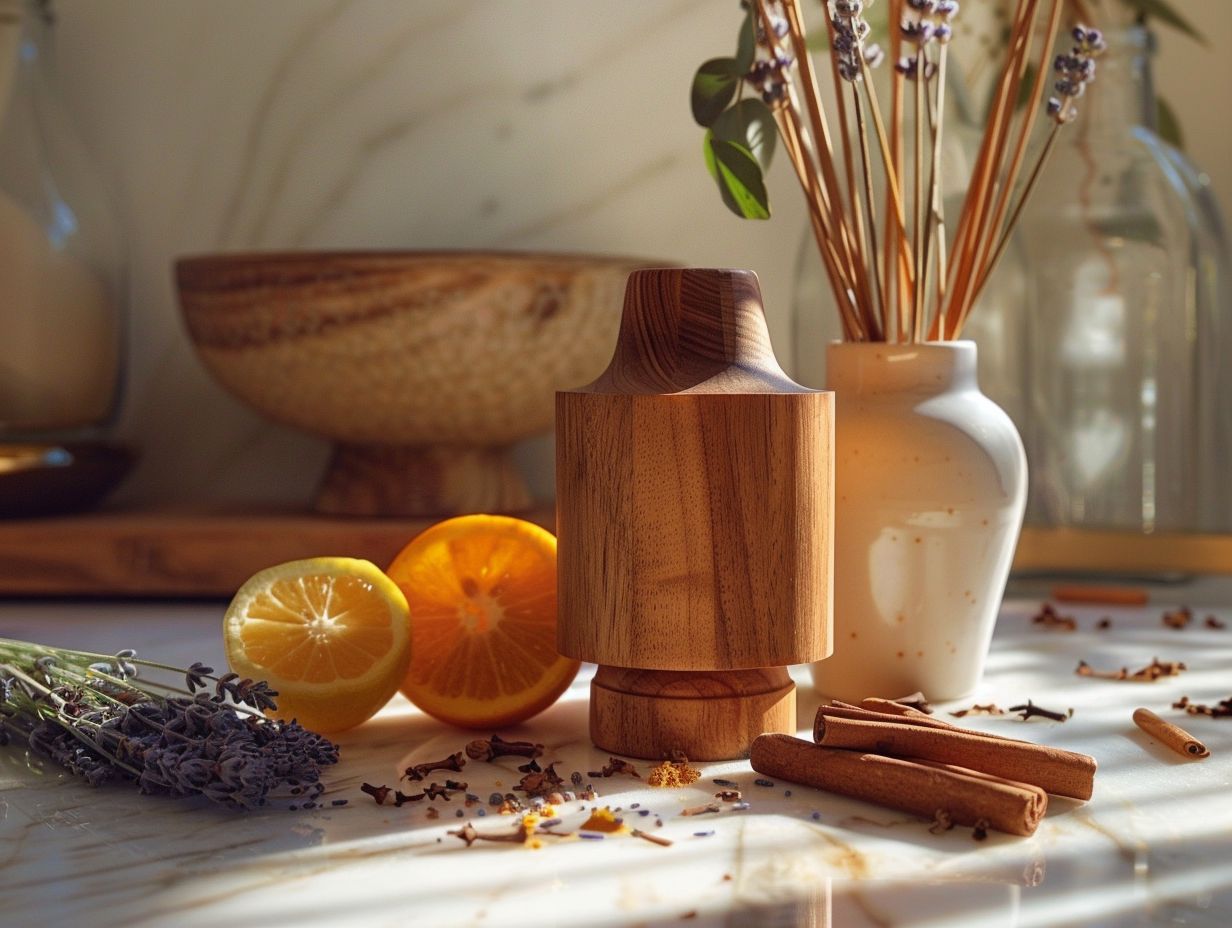
Water is a common substance used in diffusers to dilute essential oils and facilitate the diffusion process. It acts as a carrier for the scents to be released into the air.
When essential oils are dropped into the water basin of a diffuser, they sit on the surface of the water. As the diffuser operates, the small ultrasonic vibrations create a fine mist by breaking down the oil and water into tiny particles. This mist then rises and diffuses the oils into the surrounding air. The water not only helps to spread the aroma but also adds moisture to the air, making it beneficial especially in dry indoor environments.
Carrier Oils
Carrier oils are often used in diffusers to blend with essential oils, acting as a base to dilute the concentrated scents and ensure a milder diffusion in the air.
They play a crucial role in the art of aromatherapy by helping to disperse the essential oils evenly, creating a harmonious blend of scents that can have therapeutic benefits. When carrier oils are mixed with essential oils, they help moderate the intensity of the fragrance, making it more pleasant and suitable for prolonged diffusion periods. Carrier oils aid in the absorption of essential oils into the skin, allowing for better topical application and enhancing their therapeutic properties.
Herbs and Spices
Herbs and spices make excellent additions to diffusers, offering unique scents and aromatic blends that can create a refreshing and invigorating atmosphere in the space.
When lavender fills the air, it brings a sense of calm and relaxation, perfect for unwinding at the end of a long day. On the other hand, the zesty notes of lemon and peppermint can uplift the spirits and energize the mind. The versatility of herbs and spices allows you to customize your scent profile to suit your mood and preferences. From the warm and cozy embrace of cinnamon to the fresh allure of eucalyptus, each element adds a layer of complexity to the sensory experience.
Citrus Fruits
Citrus fruits like lemon or orange slices can be added to diffusers to infuse the air with their fresh and uplifting scents when mixed with water for a revitalizing ambiance.
Citrus fruits have long been revered for their aromatic properties, with lemon and orange often cited for their ability to uplift spirits and energize the senses.
When these vibrant slices are placed in a diffuser filled with water, they release their essential oils into the air, transforming the room into a fragrant oasis of rejuvenation.
The zesty notes of citrus not only perfume the air but also have mood-boosting effects, making them an excellent choice for creating an invigorating atmosphere in any space.
Floral Waters
Floral waters derived from flower petals can provide delicate and soothing scents when used in diffusers, creating a calming and aromatic experience that uplifts the environment.
When diffused, these floral waters not only infuse the air with their beautiful fragrances but also bring about a sense of tranquility and peace to any space. The gentle nature of floral waters makes them ideal for creating a harmonious ambiance in homes, offices, or wellness spaces. They offer a natural way to enhance mood and promote relaxation, turning an ordinary room into a serene sanctuary. Whether you prefer the sweet aroma of rose, the fresh scent of lavender, or the uplifting essence of chamomile, there is a floral water to suit every individual’s taste and preference.
Vinegar
Vinegar can be employed in diffusers to help clean the air and neutralize odors due to its natural disinfecting properties. When diffused, it can freshen the environment effectively.
Using vinegar in diffusers can be a simple yet powerful way to purify the air in your living space. The acidic nature of vinegar allows it to combat harmful bacteria and germs, making it an excellent natural alternative to chemical-based air fresheners. Vinegar’s ability to neutralize odors makes it a versatile solution for eliminating unwelcome smells, creating a more pleasant atmosphere. Incorporating vinegar into your diffuser routine can contribute significantly to maintaining a fresh and sanitized environment.
Witch Hazel
Witch Hazel, often found in skincare, can also be utilized in diffusers to introduce subtle and soothing scents that promote relaxation and create a calming ambiance in the space.
Known for its astringent properties, Witch Hazel oil not only adds a delicate aroma to your surroundings but also acts as a natural air freshener. Its earthy and floral notes not only uplift the mood but also help in reducing stress and anxiety levels. When diffused, the fragrance of Witch Hazel gently permeates the air, creating a tranquil environment that encourages mindfulness and relaxation. This aromatic experience can be especially beneficial during meditation or yoga practices, enhancing the overall sensory experience.
Alcohol
Alcohol is sometimes used in diffusers to help disperse fragrance oils and scents effectively into the air, ensuring a consistent and lasting aroma in the surroundings.
When added to diffuser blends, alcohol serves as a solvent that aids in the evaporation process, allowing the fragrance oils to be released and carried into the air more efficiently. This helps in evenly distributing the scent throughout a room, creating a harmonious olfactory experience. Alcohol plays a vital role in enhancing the longevity of the fragrance, as it evaporates quickly, carrying the scent molecules with it. This results in a more potent and longer-lasting aroma, ensuring that your space remains pleasantly scented for an extended period. The antimicrobial properties of alcohol can help sanitize the air and neutralize any unwanted odors, contributing to a cleaner and fresher atmosphere.
Fragrance Oils
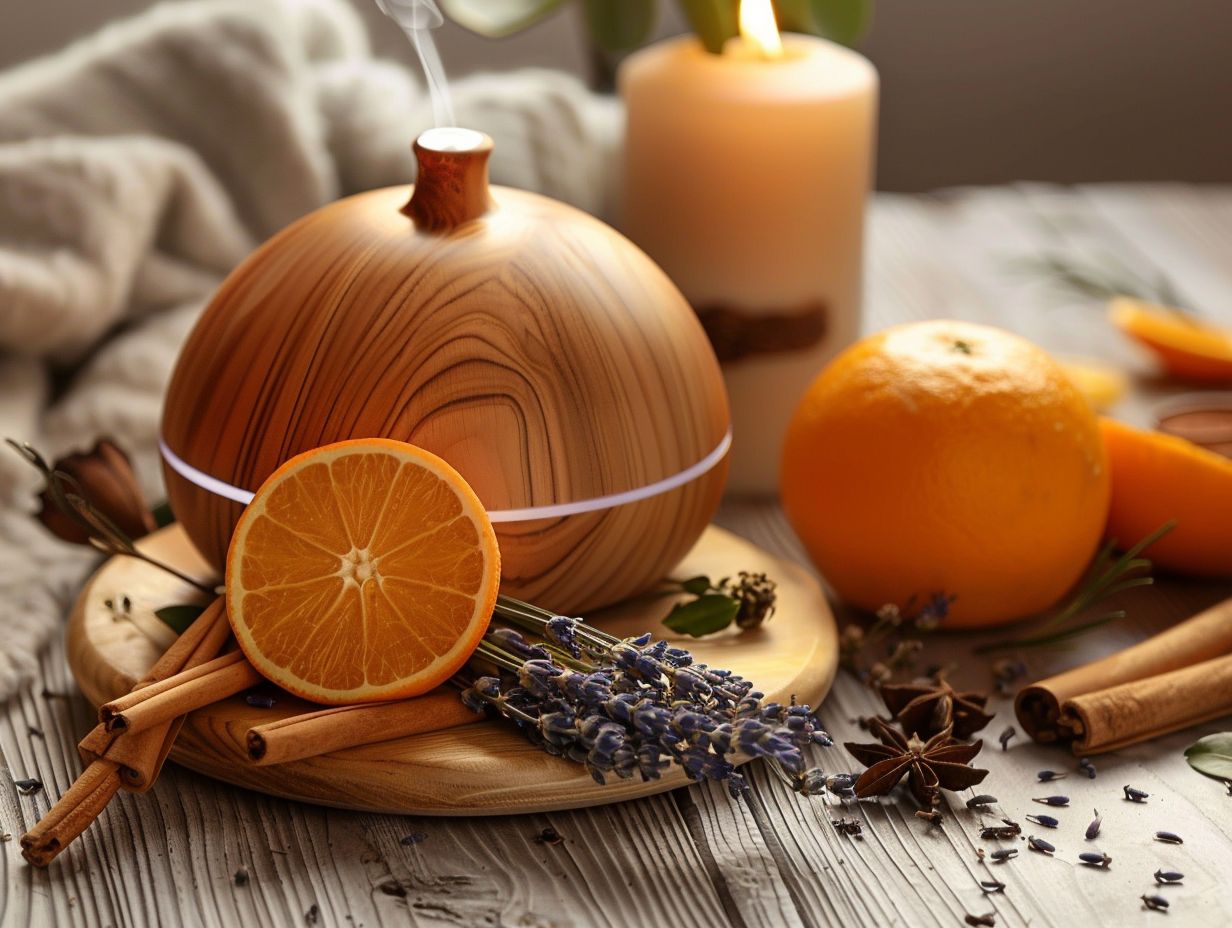
With a wide range of scents available, from calming lavender and energizing citrus to exotic sandalwood and soothing chamomile, fragrance oils cater to various preferences and moods. These oils not only envelop a space in delightful aromas but also have potential therapeutic effects, such as relaxation, stress relief, and improved focus. The use of fragrance oils in diffusers contributes to setting a pleasant and welcoming ambiance, making them perfect additions to homes, offices, and wellness spaces alike.
Insect Repellents
Insect repellents can be diffused in a device to keep pests away and maintain a bug-free environment in homes or workspaces. Certain scents are effective at repelling insects naturally.
When lemon eucalyptus oil is diffused, it can discourage mosquitoes and other unwanted bugs due to its strong scent. Similarly, citronella, lavender, and peppermint oils are renowned for their insect-repelling properties, making them popular choices for use in diffusers.
By utilizing these natural fragrances in a diffuser, you not only keep pests at bay but also create a pleasant and refreshing ambiance in your living or working areas. These repellents contribute to ensuring that you can enjoy a space free from the nuisance of insects, promoting a more comfortable and serene environment.
Are There Any Risks or Side Effects of Using Other Substances in a Diffuser?
While using other substances in a diffuser can have benefits, there are potential risks and side effects to consider, such as skin sensitivities to certain chemicals or damage to the device if incompatible substances are used.
It is crucial to be mindful of the ingredients you introduce into your diffuser, as substances like alcohol, synthetic fragrances, or carrier oils may not be suitable for diffusion and could potentially cause skin irritation or respiratory issues.
Precautionary measures are vital to ensure a safe and enjoyable experience with your diffuser. Certain substances can leave residue or clog the diffuser, leading to reduced effectiveness or even malfunction. Regularly cleaning the device and following manufacturer guidelines on proper usage can help mitigate these risks.
Allergic Reactions
Allergic reactions can occur when certain substances are diffused, leading to skin irritations or respiratory issues in individuals sensitive to the scents or chemicals used in the diffuser.
When diffusing essential oils or other fragrances, it’s essential to be mindful of potential allergens that may trigger adverse reactions. Skin irritations can manifest as rashes, redness, or itching when exposed to specific oils or chemicals. Inhalation of strong scents from diffusers may cause respiratory discomfort, such as coughing, congestion, or even difficulty breathing, especially for those with existing respiratory conditions like asthma or allergies. Allergic responses to diffused substances can vary from mild symptoms like sneezing or watery eyes to more severe reactions like hives or even anaphylaxis.
Damage to the Diffuser
Using incompatible substances in a diffuser can lead to damage to the device, affecting its functionality and longevity. It is crucial to adhere to the manufacturer’s instructions to prevent harm to the diffuser.
When you use essential oils or water-soluble fragrances in your diffuser, ensuring they are suitable for the device is crucial. Substances like thick oils, alcohol-based solutions, or perfumes may clog the diffuser’s delicate mechanisms, reducing its efficiency and performance over time. By following the recommended guidelines on the types of oils or scents compatible with your particular diffuser model, you safeguard its internal components from unnecessary wear and tear.
Fire Hazards
Certain substances like alcohol used in diffusers can pose fire hazards if not handled properly, especially with devices that involve heat for diffusion. Caution must be exercised to prevent potential fire accidents.
Alcohol, being a highly flammable substance, can ignite easily if it comes into contact with a heat source, such as the mechanism in a diffuser. The risk increases when the diffuser is left unattended or placed near other flammable items. It is essential to ensure that the diffuser is placed on a stable, heat-resistant surface away from any combustible materials.
Proper ventilation is crucial to dissipate any vapors that may accumulate and reduce the likelihood of a fire. Always follow manufacturer instructions and avoid overfilling the diffuser with alcohol to minimize the risk of spillage or leakage.
What Are Some Tips for Using Other Substances in a Diffuser?
To maximize the benefits and minimize risks when using other substances in a diffuser, it is essential to dilute them properly, opt for high-quality ingredients, and maintain the device’s cleanliness regularly. “
In terms of dilution, proper preparation is key. Diluting essential oils with carrier oils like coconut, jojoba, or sweet almond oil helps prevent skin irritation and ensures a balanced diffusion.
- For adults, a general rule of thumb is to use a 2% dilution rate, meaning 12 drops of essential oil per ounce of carrier oil.
- When choosing ingredients, prioritize purity and authenticity. Lower-quality substances may contain impurities that can compromise air quality and even health.
Regular maintenance of your diffuser is crucial to prevent mold growth and preserve its efficiency. Clean the device between uses with gentle soap and water and let it dry thoroughly to ensure optimal performance.
Dilute Properly
Diluting substances correctly before adding them to a diffuser helps control the intensity of scents and prevents potential issues like clogging the device. Water is commonly used for dilution.
Proper dilution is key to achieving the desired aroma strength without overwhelming the senses. By diluting essential oils or fragrances, you can customize the scent to suit your preferences, whether you prefer a subtle hint or a more robust fragrance.
Diluting substances in a diffuser not only extends the lifespan of the oils but also prevents damage to the diffuser itself. The water acts as a carrier for the essential oils, ensuring a consistent diffusion and optimal performance of the device.
Use High-Quality Substances
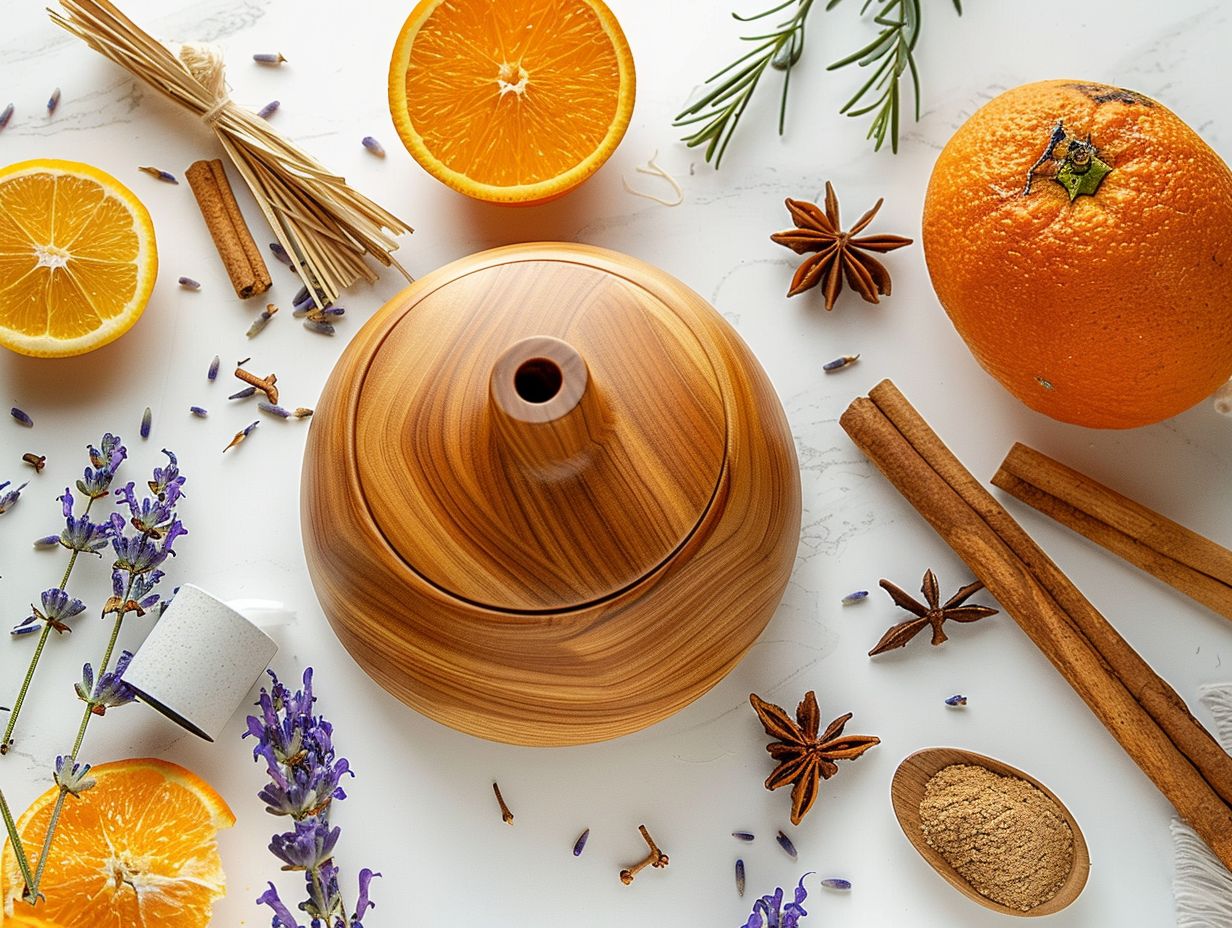
Using top-tier ingredients in diffusers not only enhances the overall olfactory pleasure but also ensures that the scents are authentic and long-lasting. High-quality substances are typically crafted with care, avoiding synthetic fillers that may trigger allergic responses or respiratory issues. By selecting reputable ingredients, individuals safeguard themselves from potential harmful effects that inferior products might bring. These premium components offer a more refined diffusion process, creating a soothing and invigorating ambiance without overwhelming the senses. It’s essential to prioritize quality when it comes to what you breathe in daily.
Clean the Diffuser Regularly
Regularly cleaning the diffuser is crucial for maintaining its efficiency and preventing issues caused by residue buildup from substances used. Following manufacturer’s instructions for cleaning is essential.
When you clean your diffuser regularly, you ensure that it functions optimally and lasts longer. Residue left unchecked can not only affect its performance but also lead to malfunctions over time. By adhering to the guidelines provided by the manufacturer, you can effectively remove any buildup and maintain the diffuser’s quality.
Frequently Asked Questions
What Can You Put in a Diffuser Besides Essential Oils?
There are actually quite a few things you can put in a diffuser besides essential oils!
Can You Use Water in a Diffuser Instead of Essential Oils?
Yes, you can definitely use water in a diffuser instead of essential oils. This is a great option for those who have sensitivity to strong scents or for creating a more subtle aroma.
Are there Any Other Natural Substitutes for Essential Oils in a Diffuser?
Absolutely! You can try using dried herbs, flowers, or citrus peels in your diffuser for a natural and refreshing scent.
Can You Put Alcohol in a Diffuser Instead of Essential Oils?
While some people do use alcohol in their diffusers, it is not recommended. Alcohol can be too harsh and overpowering and may damage your diffuser over time.
What About Using Perfume in a Diffuser?
No, it is not recommended to use perfume in a diffuser. Perfume is made with synthetic fragrances that may not diffuse well and could potentially damage your diffuser.
Can You Mix Different Substances in a Diffuser Besides Essential Oils?
Yes, you can mix different substances in a diffuser, such as water and dried herbs or essential oils and citrus peels. However, make sure to do your research and only use safe and compatible ingredients.

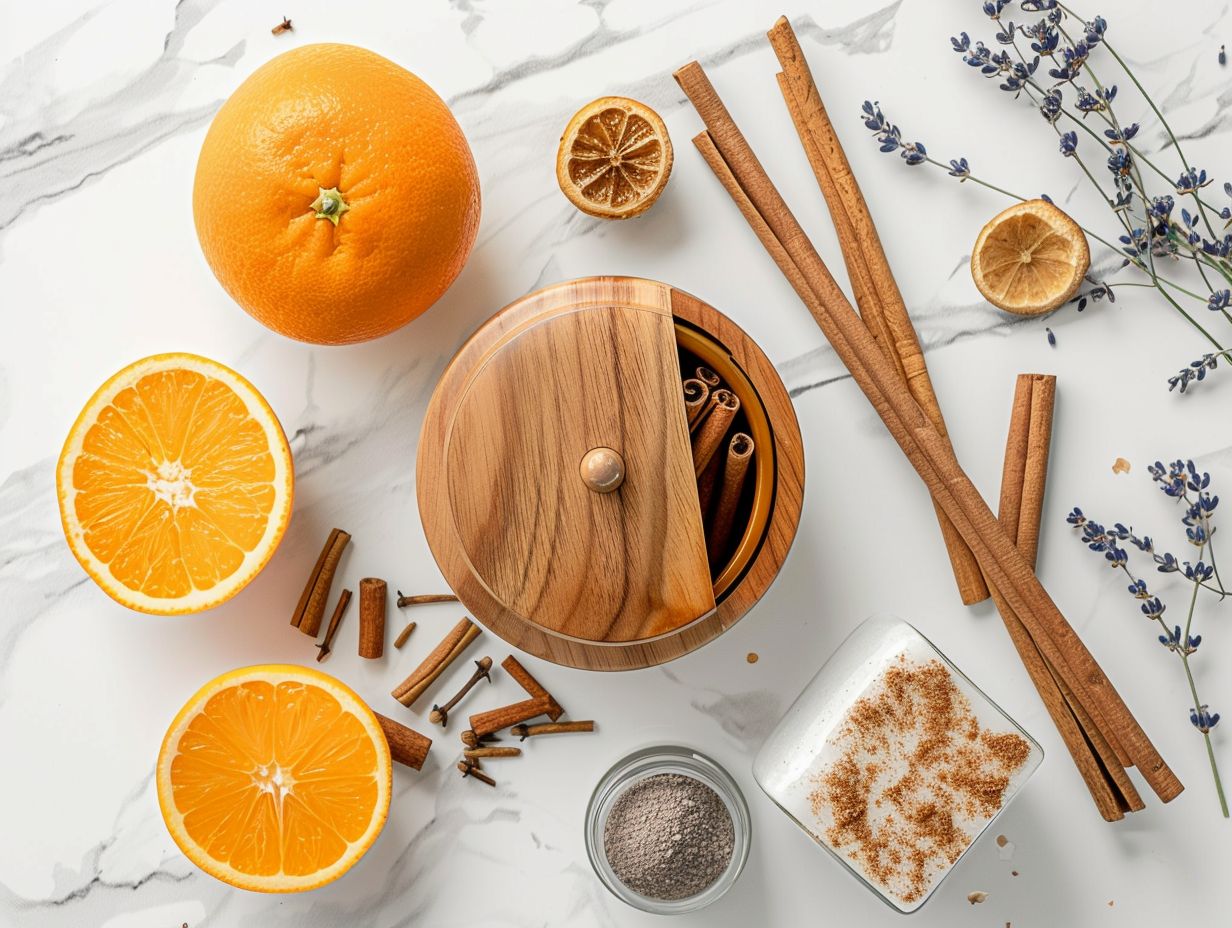
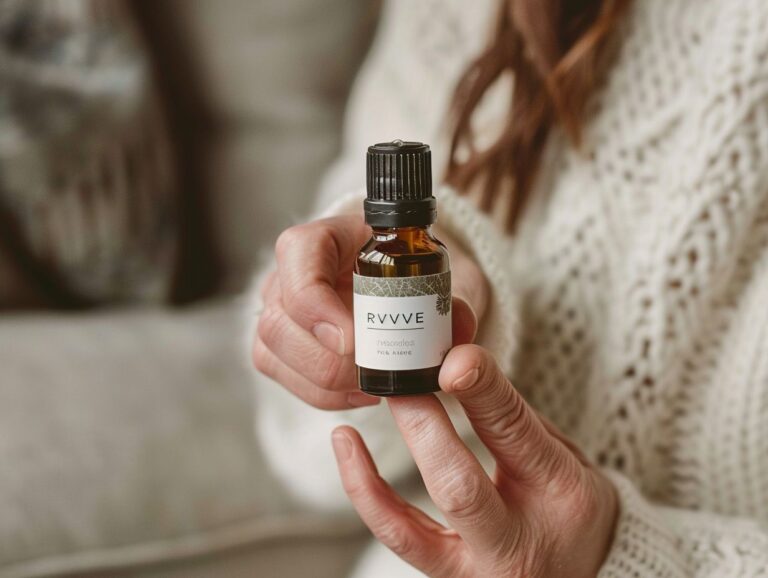
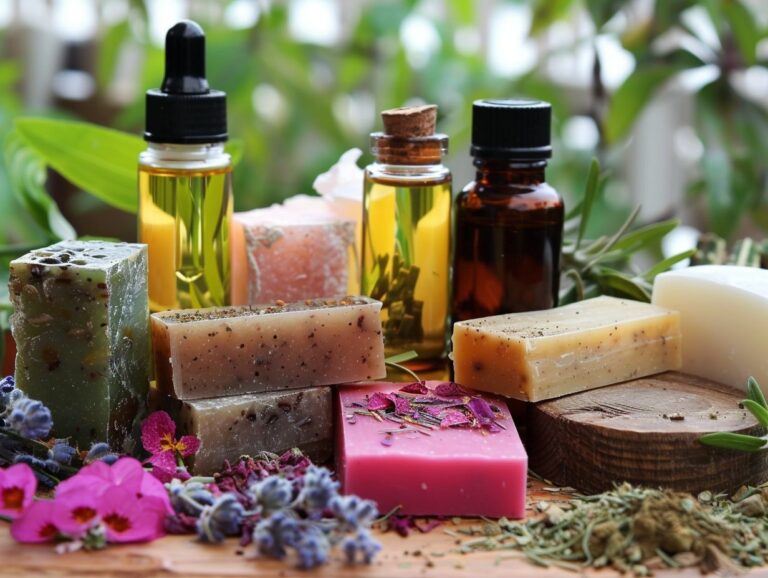
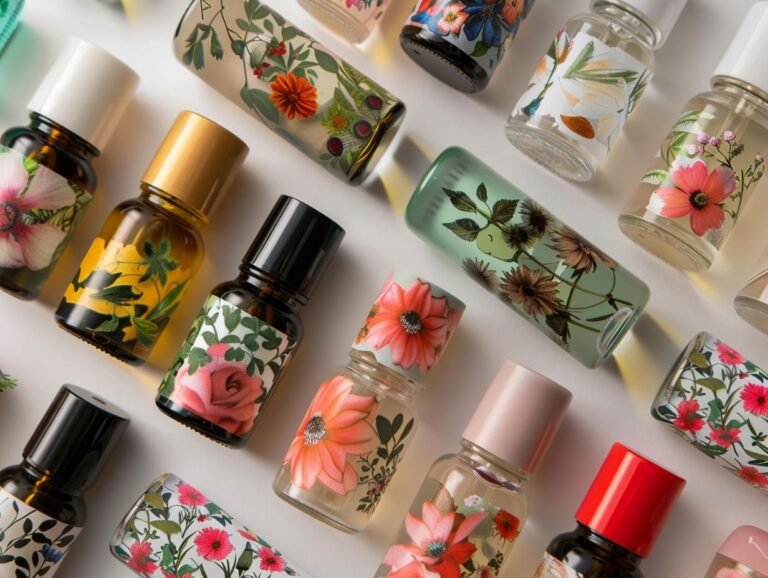

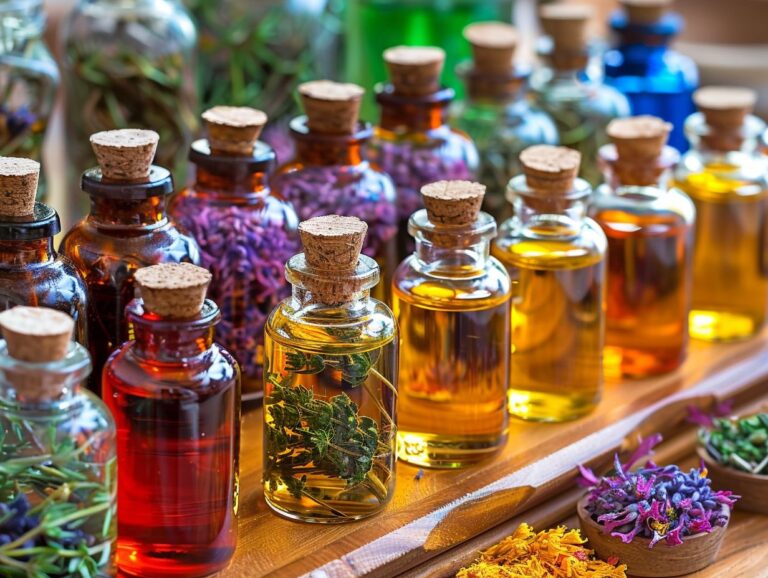

2 Comments